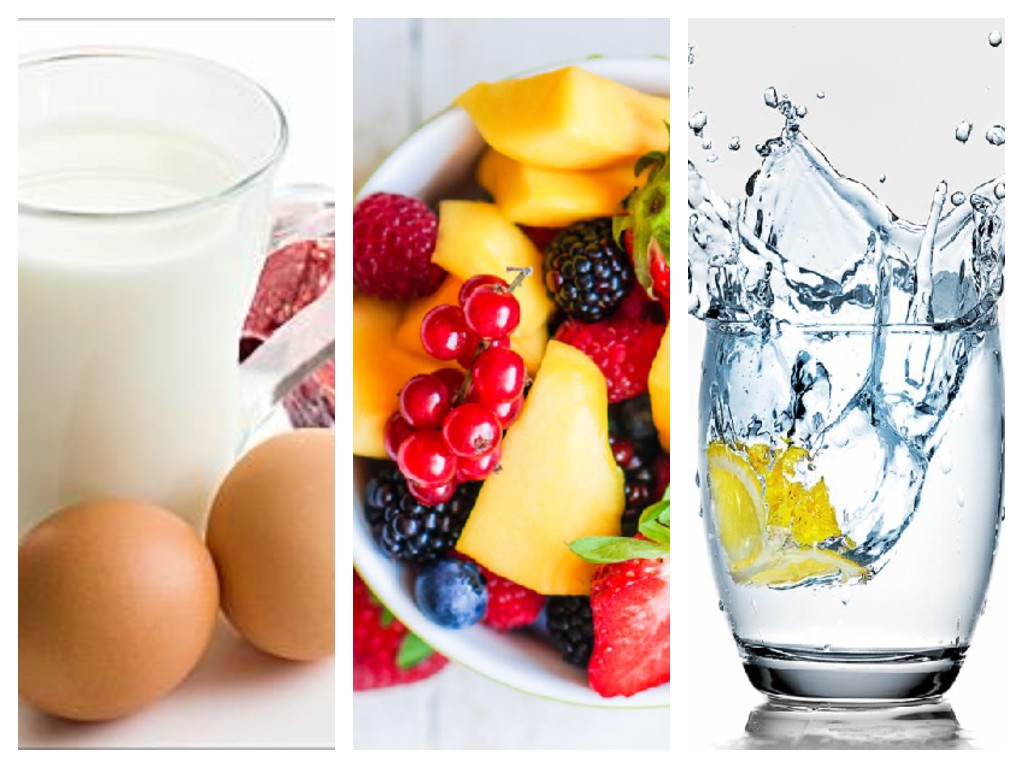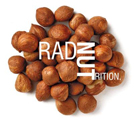When we are active, the storage form of carbohydrate, glycogen, provides fuel to working muscles during exercise. After exercise, our glycogen stores have been used up. In addition to depleted glycogen, resistance exercise (weight training) increases the rate of protein breakdown in the body. Therefore, after a work-out, nutrition is critical from:

- Protein to decrease muscle breakdown and increase muscle formation
- Carbohydrates to rebuild muscle glycogen
- Fluids to replenish fluids that have been lost and prevent dehydration
Consuming 20 grams of protein (egg, meat, milk, casein, or whey) or 10-20g of essential amino acids within 2 hours of resistance training may promote muscle repair and growth. But we still don’t want you to forget those carbohydrates! The addition of carbohydrate to protein after exercise promotes insulin to efficiently replenish muscle glycogen and may help decrease the rate of protein breakdown after exercise.
Balanced nutrition throughout the day from regular meals and snacks also promotes retention of muscle mass. Based on 2008 guidelines, the Dietitians of Canada and American Dietetic Association recommend the following daily protein intake for athletes (which can be met from consuming protein containing food):
- Endurance athletes may benefit from 1.2 -1.4 grams per kilogram of body weight of protein per day
- Strength trained athletes may benefit from 1.2-1.7 grams per kilogram of body weight of protein per day
Research suggests that carbohydrate should be ingested immediately (within 30 minutes) after exercise when the muscles act like a sponge accepting nutrients due to increase blood flow. At this time, the rate of glycogen formation is increased with proper nutrition. 1.0-1.5 grams of carbohydrate per kilogram of body weight during the first 30 minutes after exercise and then again every 2 hours for 4 to 6 hours (from meals and snacks) optimally replenishes glycogen stores in athletes.
Examples of carbohydrate and protein containing foods for athletes after exercise include:
- 1-2 cups of chocolate milk
- Smoothie made with fruit and milk or yogurt
- 3/4 cup cottage cheese, 1 fruit, and 1 english muffin
- Cereal with yogurt and berries
- Tuna, crackers and a banana
- 3/4 cup beans, 1 whole wheat pita and 1 fruit
- 1-2 eggs, toast, and 1 fruit
Dehydration decreases exercise performance. According to the American Dietetic Association, every 1 pound lost during exercise from sweat should be replenished with 2-3 cups (16-24 oz) of fluid. Fluid is retained more when consumed over a longer period of time since rapid consumption may lead to quick urinary fluid loss. The addition of a salt containing snack also helps the body to retain more fluid.
Sports drinks may be more beneficial than water in athletes involved in intense exercise lasting longer than 1 hour (e.g. hockey, soccer, interval training), if sweating is excessive, if salt lines on clothing and skin are noticeable, when weather is hot or humid, or for those wearing heavy protective equipment during activity.
Activities such as walking, riding a bike, or light exercise a few times per week may not require such regimented and intense post-exercise nutrition when balanced meals and snacks are consumed consistently throughout the day. Additionally, when trying to reach specific performance goals, seeking support from a specialized sports dietitian may be the best way to optimize your nutrition to meet your individual needs.
References
http://www.ncbi.nlm.nih.gov/pubmed/23668654
https://www.dietitians.ca/Downloads/Public/noap-position-paper.aspx
www.pennutrition.com
http://www.dietitians.ca/Your-Health/Nutrition-A-Z/Sports-Nutrition-(Adult)/What-should-I-eat-and-drink-before,-during-and-aft.aspx
http://www.dietitians.ca/Your-Health/Nutrition-A-Z/Sports-Nutrition-(Adult)/Sports-Hydration.aspx
http://www.eatright.org/resource/fitness/exercise/exercise-nutrition/timing-your-nutrition
http://www.eatrightontario.ca/en/Articles/Physical-Activity/Sports-nutrition—Facts-on-sports-supplements.aspx#pro
http://www.eatright.org/resource/fitness/sports-and-performance/fueling-your-workout/protein-and-the-athlete
https://www.sportsdietitians.com.au/factsheets/fuelling-recovery/recovery-nutrition/
http://www.precisionnutrition.com/about-post-workout-nutrition
https://services.albertamilk.com/pdfs/ABMilk%20FuelUp%202012.pdf
Images from: buzzfeed.com, pintrest.com, beprepared.com
